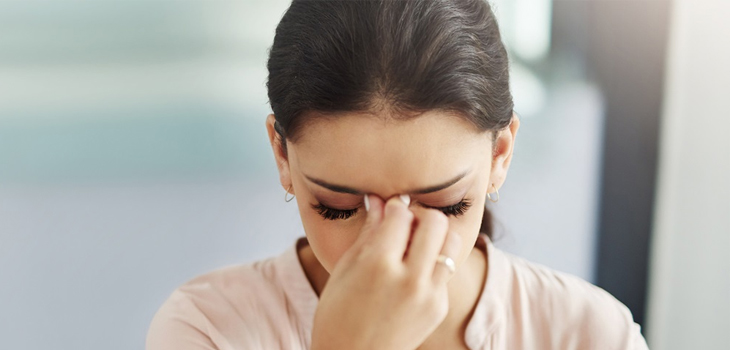
Menopause is the end of a woman’s menstrual cycles. The term can describe any of the changes you go through just before or after you stop having your period, marking the end of your reproductive years.
Menopause Causes
A woman is born with all of her eggs, which are stored in her ovaries. Her ovaries also make the hormones estrogen and progesterone, which control her period (menstruation) and the release of eggs (ovulation). Menopause happens when the ovaries no longer release an egg every month and menstruation stops.
Menopause is a regular part of aging when it happens after the age of 40. But some women can go through menopause early. It can be the result of surgery, like if their ovaries are removed in a hysterectomy, or damage to their ovaries, such as from chemotherapy. If it happens before age 40, for any reason, it’s called premature menopause.
What are the symptoms of menopause?
Every woman’s menopause experience is unique. Symptoms are usually more severe when menopause occurs suddenly or over a shorter period of time.
Conditions that impact the health of the ovary, like cancer or hysterectomy, or certain lifestyle choices, like smoking, tend to increase the severity and duration of symptoms.
Aside from menstruation changes, the symptoms of perimenopause, menopause, and postmenopause are generally the same. The most common early signs of perimenopause are:
- less frequent menstruation
- heavier or lighter periods than you normally experience
- vasomotor symptoms, including hot flashes, night sweats, and flushing
- An estimated 75 percent of women experience hot flashes with menopause.
Other common symptoms of menopause include:
- insomnia
- vaginal dryness
- weight gain
- depression
- anxiety
- difficulty concentrating
- memory problems
- reduced libido, or sex drive
- dry skin, mouth, and eyes
- increased urination
- sore or tender breasts
- headaches
- racing heart
- urinary tract infections (UTIs)
- reduced muscle mass
- painful or stiff joints
- reduced bone mass
- less full breasts
- hair thinning or loss
- increased hair growth on other areas of the body, such as the face, neck, chest, and upper back
Complications
Common complications of menopause include:
- vulvovaginal atrophy
- dyspareunia, or painful intercourse
- slower metabolic function
- osteoporosis, or weaker bones with reduced mass and strength
- mood or sudden emotional changes
- cataracts
- periodontal disease
- urinary incontinence
- heart or blood vessel disease
What Happens During Menopause?
During perimenopause, menstrual periods become irregular. Your periods may be late, or you may completely skip one or more periods. Menstrual flow may also become heavier or lighter.
Menopause is defined as a lack of menstruation for one full year.
Postmenopause refers to the years after menopause has occurred.
